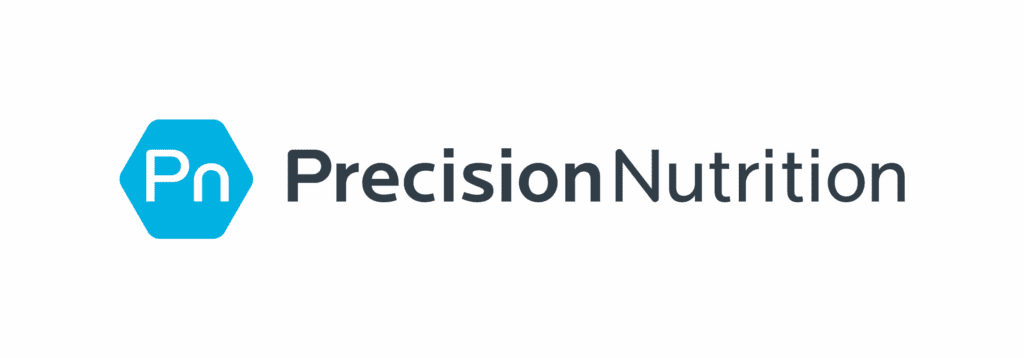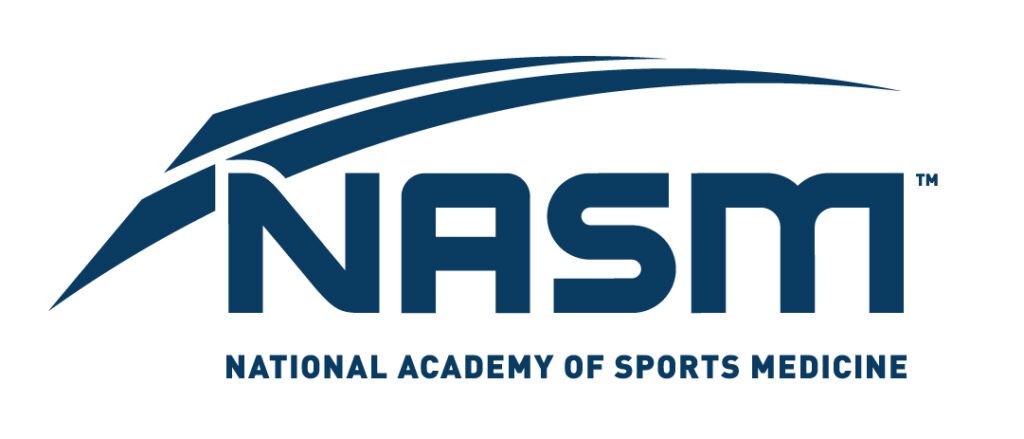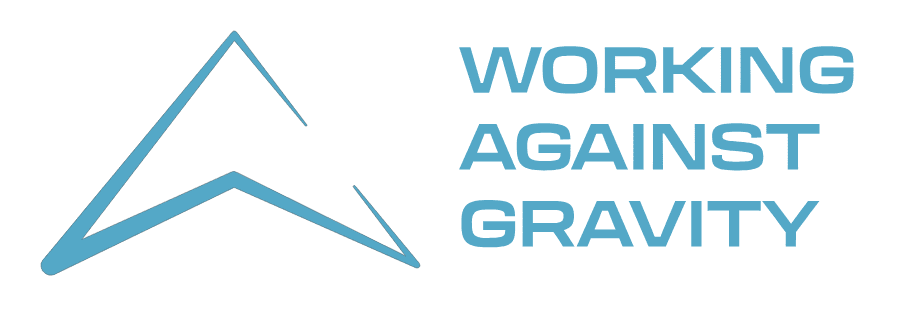Introduction to Nutrition Coaching
Nutrition coaching helps people improve their eating habits and overall health through education, advice and accountability. This type of guidance is not just about providing meal plans but involves helping clients understand the importance of balanced nutrition, making informed choices and creating sustainable habits that lead to long-term health improvements. Coaches often play a crucial role in motivating their clients and keeping them accountable.
The demand for nutrition coaching and other wellness programs has surged in recent years, due to increased awareness of health and fitness. According to Statista, the health and wellness coaching market is expected to grow at a compound annual growth rate (CAGR) of 6.67% in the United States and 9.13% worldwide between 2024 and 2029. More people than ever are interested in leading healthier lives, losing weight and managing chronic conditions through diet.
Adding nutrition coaching to an existing gym gives gym owners an additional revenue stream that can significantly raise average revenue per member (ARM). A nutrition coach can offer gym members personalized guidance aligned to their health and fitness goals, enabling them to reach those goals faster and more sustainably. This, in turn, increases retention, or length of engagement (LEG), because clients who see results and build habits tend to stick around longer.
To add a nutrition coaching program, you or a staff member will need to become certified, or you’ll need to hire someone who is already certified. Keep in mind that not all nutrition certifications are created equal. Consider each program’s cost, focus and certifying body, along with other factors like pace and customer feedback. You’ll want to choose a certification that is worth its investment. Now, let’s take at how to become a nutrition coach, step by step.

Steps to Becoming a Nutrition Coach
Obtain Certifications and Training
The first step to becoming a nutrition coach is selecting a certification and learning how to help clients accomplish their goals. You can choose from many respected certifications in the industry, including:
Precision Nutrition Level 1 (PN1) Certification: Focuses on evidence-based nutrition, coaching strategies and practical application.
Healthy Steps Nutrition (HSN) Coaching Certification: Combines nutrition and behavior change for integration into fitness and gym settings.
National Academy of Sports Medicine (NASM) Certified Nutrition Coach (CNC): Covers the essentials of nutrition science, behavior change and personalized coaching.
International Sports Sciences Association (ISSA) Nutritionist Certification: Emphasizes general nutrition principles, supplementation and behavior change strategies.
American Fitness Professionals & Associates (AFPA) Holistic Nutritionist Certification: Focuses on holistic nutrition, integrating traditional and alternative health practices.
Nutritional Coaching Institute (NCI) Certification: Emphasizes behavior change and practical coaching strategies.
Working Against Gravity (WAG) Nutrition Certification: Specializes in macro-based coaching and flexible dieting for body composition.
Depending on the certification, you might have to complete coursework, pass exams and acquire continuing education credits to maintain your credentials.
Develop Essential Skills for Nutrition Coaching
Being a good nutrition coach isn’t just about knowing your macros; it’s about helping people create lasting habits and build a healthier relationship with food. In addition to knowledge of nutritional science, an effective coach should possess a coaching mindset and have soft skills such as communication and empathy.
Nutrition coaches should be able to listen actively and explain concepts clearly, while being supportive and building trust. They should also be knowledgeable about the psychology of behavior change.
What Can You Do With a Nutrition Certification?
Certified nutrition coaches focus on providing general dietary guidance and promoting healthy eating habits. This often includes:
Educating clients about the basics of nutrition, such as understanding macronutrients, reading food labels and making healthier food choices.
Offering personalized advice on balanced eating patterns, portion control and meal timing to support fitness and wellness goals.
Guiding clients on behavior changes related to eating habits, such as eating mindfully, reducing sugar intake, and batch cooking.
Nutrition coaches do not diagnose medical conditions or prescribe diets for managing diseases. Their role is to support overall wellness and healthy lifestyles, while leaving medical or therapeutic dietary interventions to licensed health-care professionals, such as registered dietitians (RDs) or physicians.

Legal Considerations
Many states have legal restrictions on who can provide specific dietary guidance or create meal plans. Some states require licensure for any kind of nutritional advice, while others allow non-licensed coaches to offer general guidance.
In stricter states, planning meals and providing detailed nutritional interventions is limited to licensed dietitians or medical professionals. Some states protect titles such as “nutritionist” or “dietitian,” meaning only those who meet specific educational and licensure criteria can legally use them.
Learn more about these legalities in the Academy of Nutrition and Dietetics’ Licensure Map and Statutes by State.
Many nutrition coaches navigate regulatory restrictions by focusing on coaching habits rather than providing detailed meal plans. Habits coaching involves:
Helping clients develop sustainable behaviors, such as preparing meals at home, eating more vegetables or planning healthy snacks.
Guiding clients to identify triggers for unhealthy eating patterns and offering strategies for making better choices, such as meal prepping or mindful eating.
Emphasizing long-term habit changes over short-term fixes.
This approach keeps you compliant while helping clients take control of their own eating habits, leading to more sustainable outcomes.
Top Nutrition Certifications for Gym Owners
Factors to Consider When Choosing a Program
Consider the scope of the curriculum and the topics covered. Some programs emphasize evidence-based nutrition and the science behind diet, while others focus more on behavior change, coaching psychology or holistic approaches. Choose a program that aligns with your philosophy and the type of coaching you want to provide—whether you’re focused on fitness nutrition, holistic health or general wellness.
Another important factor is the credibility and reputation of the certifying organization. Look for programs that are well recognized in the industry, with strong reviews and testimonials from past students.
Consider the flexibility and format of the course. Many certifications are self-paced, allowing you to study on your own schedule, while others may have live sessions or structured timelines. Consider your learning style and how much time you can dedicate to studying.
Evaluate the cost and potential return on investment. While some programs have a higher upfront price, they might offer more comprehensive resources or ongoing support. Choose a program that provides the best value based on your budget and goals.
You should always ask these questions when considering a credential: “Will it help me get great results for my clients?” and “Will I get a significant return on my investment?”
Overview of Popular Certifications

Precision Nutrition Level 1 Certification
Overview
Precision Nutrition Level 1 (PN1) is a comprehensive certification known for its evidence-based approach to nutrition. It provides coaches with a solid foundation in nutrition science, behavior change and coaching strategies. PN also offers nutrition coaching itself; while this hands-on experience helps inform their curriculum, it also makes them a direct competitor for your nutrition offerings.
Time to Completion
The self-paced program takes about three to six months. An expert-guided session runs twice per year and runs for 20 weeks.
Price
The self-paced program is priced at $99 USD per month for 12 months, with promotional pricing frequently available.
Reviews and Feedback
Precision Nutrition is widely regarded as one of the best certifications for its in-depth content, practical application and strong focus on client communication skills. Reviews often highlight the quality of the resources, including the textbook and coaching tools, as well as the emphasis on long-term habit change. Some users complain that many of the coaching insights offered in the Level 1 program are available on PN’s website for free.

Healthy Steps Nutrition (HSN) Coaching Certification
Overview
HSN’s program focuses on building a nutrition program in an existing gym and is common among CrossFit affiliates (though CrossFit recently released its own nutrition certification). HSN offers a habits-based program that covers nutritional science and the relationship between nutrition and chronic disease. It emphasizes practical application and includes six weeks of nutrition coaching from an HSN HQ Coach to allow users to experience the program from a client’s perspective. Optionally, users can take the course alongside HSN mentoring, which provides six one-on-one mentoring calls and other additional support.
Time to Completion
About six weeks, according to HSN .
Price
$1,399 for the standalone course (one mentoring session included).
Reviews and Feedback
Users note that HSN’s program provides a strong foundation on nutrition coaching, as well as ample support for implementing a program in an existing gym. Other users point out that HSN requires the gym owner to go through the program, along with anyone who will coach the program, which increases the overall cost of the training. Gym owners appreciate the ongoing learning opportunities and resources HSN offers.

National Academy of Sports Medicine (NASM) Certified Nutrition Coach (CNC)
Overview
Focused on practical coaching skills, the NASM Certified Nutrition Coach (CNC) program covers essential nutrition concepts while emphasizing sustainable behavior change. It’s designed to help coaches provide practical, evidence-based guidance to help clients improve their diet and lifestyle.
Time to Completion
Four to 12 weeks (self-paced).
Price
$79 per month for 11 months, with promotional pricing frequently available.
Reviews and Feedback
NASM’s program is praised for its user-friendly platform, clear organization and focus on practical skills. Many find it a great entry point for those new to nutrition coaching. However, some users feel the content is not as in-depth as other certifications and state they do not recommend it if you’ve already completed another certification.

International Sports Sciences Association (ISSA) Nutritionist Certification
Overview
Regarded as flexible and comprehensive, the ISSA Nutritionist certification provides a broad overview of general nutrition principles, weight management, supplementation and behavior change. It covers trending diets and myths, as well as how to create personalized nutrition programs.
Time to Completion
Two to eight months (self-paced).
Price
$66.48 per month for 12 months, with promotional pricing frequently available.
Reviews and Feedback
Many coaches appreciate the ISSA Nutritionist Certification for its flexible format and straightforward content. It’s often seen as a good choice for those seeking a broad overview without deep specialization. The certification is praised for its straightforward content and approachable style, although some users note it lacks resources for helping clients make behavioral changes around food and nutrition.

American Fitness Professionals & Associates (AFPA) Holistic Nutritionist Certification
Overview
The AFPA Nutrition and Wellness Consultant certification focuses on holistic nutrition, emphasizing a well-rounded approach to wellness that includes the physical, mental and emotional aspects of health. It covers a variety of topics, from nutrition fundamentals to weight management, sports nutrition and plant-based diets.
Time to Completion
Six months or less (fee charged for six-month extension).
Price
$1,099.
Reviews and Feedback
This certification is valued for its holistic focus and in-depth content. Users state it is a good fit for those interested in integrating holistic health with traditional nutrition coaching. Some users note that the course lacks some of the more advanced scientific details found in other programs and point out that it focuses heavily on a plant-based diet.

Nutritional Coaching Institute (NCI) Level 1 Certification
Overview
NCI places a strong emphasis on behavior change, coaching psychology and the practical aspects of working with clients. It’s designed to equip coaches with strategies to understand and navigate client behavior for more effective coaching outcomes.
Time to Completion
Approximately 90 days (self-paced).
Price
NCI notes $1,297 as the “recommended retail price” for its Level 1 certification with $648.50 listed as its current price.
Reviews and Feedback
NCI’s certification is popular among those who want to specialize in habits-based coaching. Users highlight the program’s interactive components and real-world applicability. However, some find it less comprehensive than other programs in terms of advanced nutritional science.

Working Against Gravity (WAG) Nutrition Certification
Overview
WAG’s certification focuses on flexible dieting, macro-based coaching and behavior-change strategies. It emphasizes practical coaching skills, such as assessing client progress, using motivational interviewing and building relationships with clients. It also addresses topics such as the ketogenic diet and pregnancy nutrition.
Time to Completion
One to six months (self-paced).
Price
$1,000, with frequent half-off promotional pricing.
Reviews and Feedback
Users say the program prepares coaches well for coaching behaviors and creating real change. Some users note that the curriculum is rooted in strong science but focuses heavily on macros, which isn’t sustainable for a lot of clients.

Implementing Nutrition Coaching in Your Gym
One way to begin integrating nutrition coaching into your gym is by running a challenge where participants are given a 30-day or six-week goal. This goal could be anything from “eat more vegetables” to “cut out refined sugar.” These challenges give you the opportunity to market your new services while giving prospects and existing clients a low-cost, low-commitment option for getting started. Come up with a way to track participants’ success during the challenge. When it’s over, announce a winner—maybe even offer a prize.
Challenges are a great way to introduce clients to regular nutrition coaching. By showing them quick wins, you can help them see the value of ongoing support. Throughout the nutrition challenge, talk about the option of ongoing coaching. Then, at the end of the challenge, meet with participants to go over their progress and ask them to sign up for nutrition coaching. You can run short-term challenges throughout the year to continue to bring in new nutrition clients.
You’ll also need to determine who will run your nutrition program. Will this be you, one of your existing coaches or a new hire? Make sure all of your staff are trained on the program, even if they aren’t the ones running it. Every staff member should be knowledgeable enough to answer basic questions about your nutrition offerings and get clients signed up. Most importantly, coaches should know to only promote your gym’s nutrition program to clients.
Pricing Your Nutrition Coaching Services
Our 2023 “State of the Industry” report showed that the average monthly price for nutrition services is $151. The report also showed an 8% annual increase in price, based on four years of data. This suggests the projected average cost of nutrition coaching in 2024 is $163, with an increase to $176 in 2025.
Keep in mind that these stats were reported by gym owners—and many gym owners underprice their services. It is a mistake to copy “what everyone else is doing,” either locally or online. Pricing plans should always be based on clear business metrics: profit margin, fixed costs, staff costs, marketing costs, value and so on.
When pricing your nutrition offerings, consider what each package will include. How many weekly check-ins will there be in each tier? How long will goal review sessions be, and how often will they occur? What is the length of commitment? Will you offer any extra resources, such as access to a private Facebook group?
For example, you might price month-to-month nutrition coaching with three weekly electronic check-ins, a monthly 30-minute goal review session and access to an exclusive coaching Facebook group at $150 per month. Meanwhile, you might offer a lower-tier, three-month commitment service with only one weekly check-in, a monthly 15-minute goal review session, and no Facebook group for $75 per month.
Consider setting prices for nutrition as a standalone service and as part of a bundle with other fitness services, such as group or personal training. For instance, you might take $25 off the price of nutrition coaching when bundling it with a personal-training package to create a “hybrid package.”
Also keep in mind the short-term challenges we discussed in the last section, which can be used as a low-cost entry point for new nutrition clients. You will need a plan to acquire more clients, so you must consider marketing costs when pricing services.
A Two-Brain mentor can help you run your numbers, build and price a high-value service package with plug-and-play resources, develop a staffing plan, optimize delivery, and maximize profit in your new revenue stream.
Benefits of Nutrition Coaching for Gym Members
Personalized nutrition coaching helps gym members reach their goals faster, and tangible results boost retention.
Two-Brain client Ric Thompson, owner of CrossFit PTC, says, “Our best clients are the ones that see results, and they see results when they’re working on both nutrition and movement as well as sleep and recovery—all those other pieces to it.”
Another Two-Brain client, Ashley Nard, shared the benefits of habits-based coaching, saying, “I don’t have many clients that do both (nutrition and fitness), but absolutely the ones who focus on both see better results. The biggest trick is focusing on habits versus strictly nutrition. Life has ebbs and flows, and the most successful clients have tools to help them navigate effectively.”
“We’ve noticed that our gym members who have added in nutrition, it’s increased their length of engagement,” says Clark Hibbs, owner of Yellow Rose Fitness. “Because all of a sudden when they lose 10, 12, 15, 20 pounds—‘Oh wow, I feel better in the gym. I enjoy working out more, I’m recovering better, I’m sleeping better, I’m happier.’”

Financial Impact of Nutrition Coaching
According to our 2023 data, gyms that offer nutrition coaching generate an average of 4.3% of their annual revenue from it. This may not seem like a substantial number, but our 2024 “State of the Industry” report shows that gyms are averaging about $24,000 in gross revenue per month, or $288,000 per year. That means the average nutrition program brings in around $12,000 annually.
And 4.3% is just the average. Some gym owners, such as Two-Brain client Clark Hibbs, are bringing in as much as 20% of their total revenue from nutrition coaching. Chad Pinther, owner of Colfax Strong Strength and Conditioning, says his wife has generated an extra $2,000 in income per month since implementing an in-house nutrition program.
Another Two-Brain client, Mike Monaco, partially attributes his $420-plus ARM to his gym’s holistic offerings of fitness, nutrition and recovery. These options allow him to prescribe custom plans for getting members to their goals.
The revenue boost from these programs has even enabled gym owners, such as Two-Brain mentor and chiropractor Brian Strump, to provide full-time careers for nutrition coaches—in fact, Brian employs two.
One benefit on nutrition coaching that cannot be overlooked: It scales much faster than fitness coaching and does not require a lot of space and equipment. Some gym owners run programs from very small offices or even spare bedrooms in homes, and an efficient, focused coach can deliver top-notch service to many nutrition clients in a relatively short amount of time.
Ultimately, the financial impact of adding a nutrition program to your gym depends on factors such as pricing, cost of delivery, engagement and retention. If the program is priced too low, you may not see a return on your investment. If enrollment is low or clients quit after a short period of time, your profitability may be eroded by the need for constant marketing. On the other hand, a competitively priced nutrition program that produces swift, consistent results for clients can generate significant revenue.
Resources for Nutrition Coaches
Tools and Software
Tools such as MyFitnessPal and Trainerize can help nutrition coaches manage meal planning and tracking. Some nutrition certification providers offer turn-key nutrition programs for gym owners; HSN has its own app for communicating with clients and tracking their habits and progress.
Scheduling platforms such as Calendly, Acuity Scheduling and Zoom Scheduler give coaches simple options for setting virtual coaching sessions and goal reviews with clients, while apps such as Slack and WhatsApp can support regular communication.
Gym owners should also consider the features available through their existing gym management software, if applicable. Many software providers have built-in scheduling and communication features that can extend to nutrition coaching. Some also offer integrations to nutrition coaching software.
Continuing Education and Professional Development
After completing an initial certification, nutritional coaches can continue their education with more advanced programs, such as Precision Nutrition’s Level 2 Master Health Coaching certification or the National Academy of Sports Medicine’s (NASM) Master Trainer credential.
Some certifications must be renewed every couple of years and require coaches to obtain a certain number of continuing education units (CEUs) to do so. Many coaches opt to continue their learning by completing additional certification programs from different providers. Some providers, like ISSA, even provide bundles intended for professional development.
Professional development is important, but it’s a mistake to acquire more credentials just to “look more qualified.” Keep learning and growing as a coach, and maintain your credentials, but carefully evaluate additional credentialing expenses. Will another certification help you serve clients better and add value to your coaching? Or does another credential just add a few more letters on your business card?
Remember this: If you are a qualified nutrition coach, clients don’t care about how many credentials you have. They care about results: “Did I lose 10 pounds?”

Conclusion
As the demand for wellness programs continues to grow, now is the perfect time to position yourself as a leader in the field. Adding nutrition coaching to your gym is more than just a revenue boost; it’s a way to get your members to their goals and ensure they stick around long enough for you to truly change their lives. Take action today to expand your services and make a greater impact on your community.
For more support with starting a nutrition program in your gym, click here to book a free call with Two-Brain Business to talk about mentorship. All Two-Brain clients have access to specialty mentorship calls with experts in nutrition coaching, private training, marketing, sales and more.
Additional Resources
- Podcast: “Revenue Boost: How to Launch a Nutrition Program in 6 Weeks”
- Podcast: “Your Gym Can Sell More Nutrition Coaching. Here’s How.”
- Podcast: “How to Generate 20% of Gross Gym Revenue Through Nutrition”
- Podcast: “Why Aren’t You Generating More Nutrition Revenue at Your Gym?”
- Podcast: “Nutrition: Defining Success for Clients, Coaches and Businesses”
- Podcast: “Starting, Scaling and Staffing a Nutrition Business in Your Gym”

